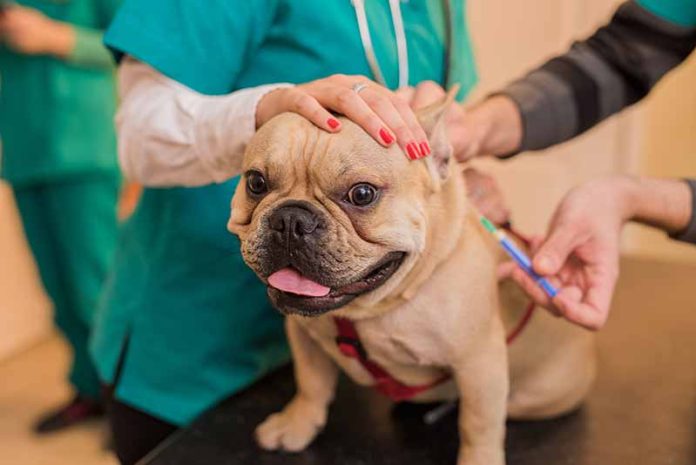It is that time of year again, when the leaves change colors, the days get shorter, and the cold weather sets in as old man winter arrives. Along with the winter months comes the influenza season. Our two-legged children go back to school and bring home every bug imaginable! The latest trend in “people care” is to inoculate people for the “best guess” flu virus as determined by research at the Center for Disease Control (CDC). Some employers even provide this as a free service, or in some cases, mandatory requirement of employment now. But what about Fido?
What is frightening to us as pet parents is the new scare of the Canine Influenza Virus (CIV). Should my four-legged baby need to get vaccinated? Is it a real danger? To answer these questions lets first get to know the history of the Canine Flu.
The Canine Flu Virus came into being in the early 2004 in Florida. Cases of racing Greyhounds were becoming ill from flu-like symptoms at racing kennels and other areas where animals were closely boarded. By 2009, 30 states had reported cases of the flu, but all were limited to dogs that came in contact with multiple animals in boarding situations. The veterinary experts and disease centers classify this virus as likely originating from flu prevention techniques in horses. It is suspected that over use of equine inhalant flu virus treatments has created resistant strains of the equine flu H3N8 which has been around for decades and it “jumped species”, most probably in the combined racing environment of horses and dogs.
If your dog gets the canine flu it will appear much like kennel cough only lasting longer. Your dog will be lethargic, have a runny nose and eyes and a loss of appetite, much like we humans do. The treatment is to make your friend comfortable and let it run its course. Your vet can determine if it is canine flu and monitor your pet to make sure it doesn’t develop into pneumonia which is much more serious. But should you vaccinate to prevent it? As of now, the veterinary world is classifying the vaccine as a “lifestyle vaccine” much like the kennel cough vaccine, as opposed to a “core vaccine” like Parvo, Distemper, or Rabbies. If you plan on boarding your dog, or your dog comes in contact with multiple animals in any setting, then you may want to consult your vet for advice. Otherwise, if your dog lives in your home and has limited contact with unknown animals, you may want to forego this treatment. The CDC has said that all dogs have the POTENTIAL to contract this virus, not all dogs who do contract it will even show symptoms and estimate up to 80 percent will only have mild forms. Remember, if your dog does get the flu, it will build antibodies naturally against future exposure. As always, if you have questions or concerns, or your dog shows any symptoms of illness, consult your vet! Only a vet can determine the best course of action and give the best advice.








